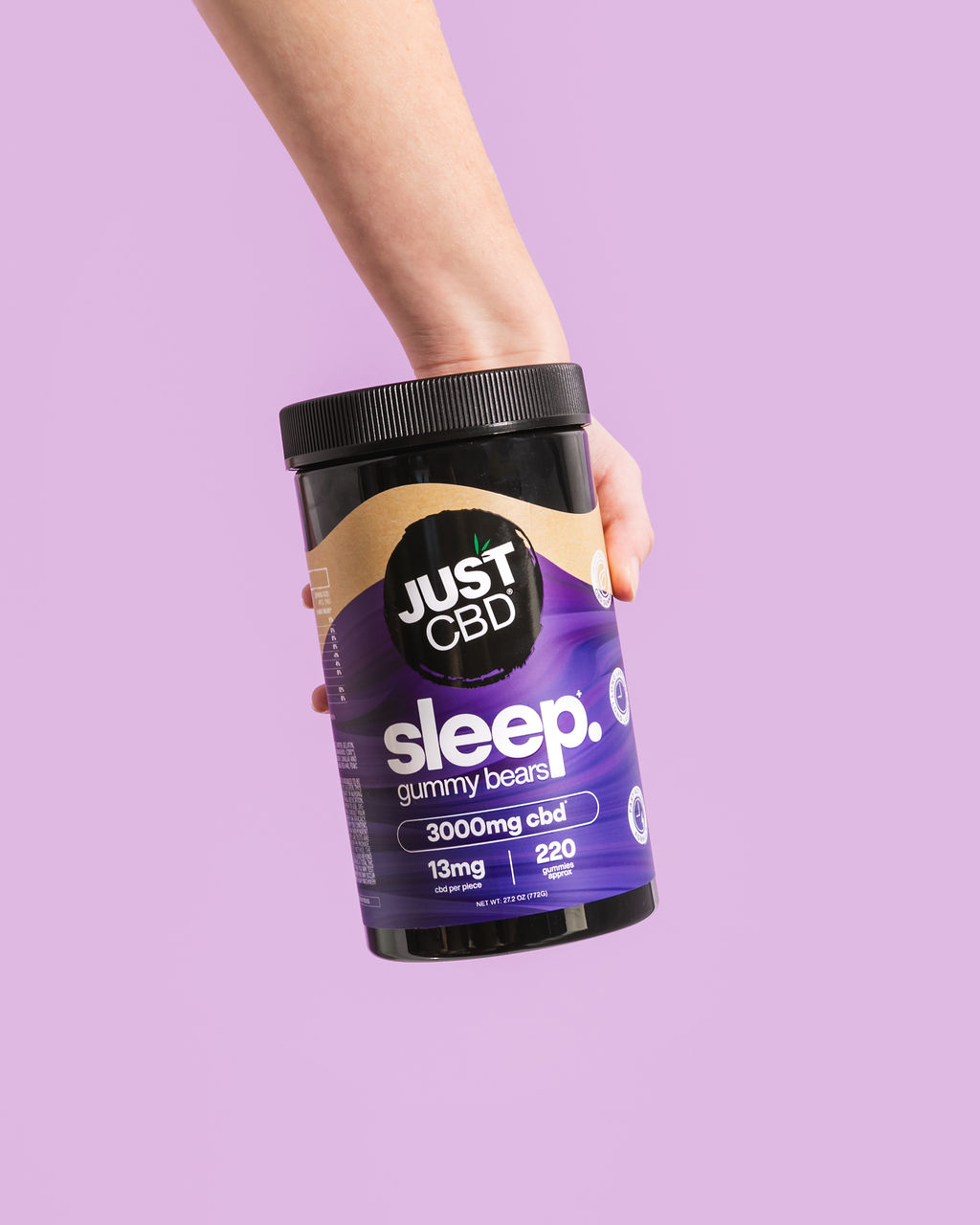Kratom and Sleep
Kratom, a tropical tree native to Southeast Asia, has gained popularity in recent years for its potential medicinal properties. While often associated with pain relief and energy enhancement, kratom’s impact on sleep has become an area of interest. Some individuals report using kratom to induce relaxation and improve sleep quality, prompting the question: do kratom gummies specifically offer any benefits for those struggling with sleep issues?
How Kratom Affects Sleep
Kratom, a tropical tree native to Southeast Asia, has gained popularity for its purported medicinal properties. One area of interest surrounds its potential impact on sleep. Kratom contains alkaloids that can interact with opioid receptors in the brain, leading to effects ranging from energy boosting to sedative.
At lower doses, kratom may increase alertness and focus, making it less likely to promote sleepiness. However, at higher doses, some users report experiencing drowsiness and relaxation, potentially aiding in falling asleep. It’s important to note that the effects of kratom can vary greatly depending on factors like individual tolerance, dosage, and the specific strain consumed.
While anecdotal reports suggest kratom gummies might help with sleep, scientific research on this topic is limited and inconclusive. More studies are needed to determine the efficacy and safety of kratom for sleep disorders.
Different Strains for Sleep
Kratom, a tropical tree native to Southeast Asia, has gained popularity for its potential medicinal properties, including its impact on sleep.

Certain strains of kratom are believed to promote relaxation and drowsiness, potentially aiding in sleep. These typically include red vein kratom varieties, known for their sedative effects.
Red Maeng Da, Red Bali, and Red Thai are popular choices among those seeking sleep assistance from kratom. They often contain higher levels of mitragynine and 7-hydroxymitragynine, alkaloids associated with relaxation and pain relief, which can contribute to better sleep quality.
It’s important to note that individual responses to kratom can vary greatly, and what works for one person may not work for another. Starting with a low dose is crucial, and it’s advisable to consult with a healthcare professional before incorporating kratom into your sleep routine, especially if you have any underlying health conditions or are taking medications.
Potential Benefits of Kratom Gummies for Sleep
Many individuals struggle to get restful sleep, searching for natural solutions to improve their sleep quality. Kratom, a plant native to Southeast Asia, has gained attention as a potential remedy for sleep difficulties. Kratom gummies offer a convenient and palatable way to consume kratom, making it an appealing option for those looking to incorporate this herb into their sleep regimen.
Improved Sleep Quality
Kratom gummies are becoming increasingly popular as a potential aid for sleep issues. Proponents suggest that kratom’s alkaloids, particularly mitragynine and 7-hydroxymitragynine, may promote relaxation and induce drowsiness, potentially leading to improved sleep quality. Some users report that kratom gummies help them fall asleep faster, stay asleep longer, and wake up feeling more rested.
It’s important to note that research on the effects of kratom on sleep is limited and inconclusive. More studies are needed to determine its efficacy and safety for this purpose.
Reduced Insomnia Symptoms
Kratom, a tropical tree native to Southeast Asia, has gained popularity in recent years for its potential medicinal properties. While often associated with pain relief and energy enhancement, kratom’s impact on sleep has become an area of interest. Some individuals report using kratom to induce relaxation and improve sleep quality, prompting the question: do kratom gummies specifically offer any benefits for those struggling with sleep issues?
Kratom gummies are a popular form of consuming kratom due to their convenience and ease of dosing. Proponents suggest several potential benefits of using kratom gummies for sleep:
- Promotes relaxation:
- May reduce anxiety:
- Helps with falling asleep:
- Improves sleep quality
Pain Relief and Relaxation
Kratom, a tropical tree native to Southeast Asia, has gained popularity in recent years for its potential medicinal properties. While often associated with pain relief and energy enhancement, kratom’s impact on sleep has become an area of interest. Some individuals report using kratom to induce relaxation and improve sleep quality, prompting the question: do kratom gummies specifically offer any benefits for those struggling with sleep issues?
Kratom contains alkaloids that can interact with opioid receptors in the brain, leading to effects ranging from energy boosting to sedative. At lower doses, kratom may increase alertness and focus, making it less likely to promote sleepiness. However, at higher doses, some users report experiencing drowsiness and relaxation, potentially aiding in falling asleep. It’s important to note that the effects of kratom can vary greatly depending on factors like individual tolerance, dosage, and the specific strain consumed.
- Potential Benefits: Kratom gummies could potentially promote sleep by inducing relaxation and drowsiness at higher doses.
- Limited Research: Scientific research on kratom’s effects on sleep is limited and inconclusive. More studies are needed to determine its efficacy and safety for sleep disorders.
Potential Risks and Side Effects
Like any substance that affects the central nervous system, kratom use carries potential risks and side effects. These can range from mild discomfort to more serious health issues depending on factors such as dosage, frequency of use, and individual sensitivity.

Tolerance and Dependence
While some people believe kratom can help with sleep, there are potential risks and side effects to consider. Kratom interacts with opioid receptors in the brain, and misuse can lead to dependence and addiction. Tolerance can also develop, requiring higher doses to achieve the desired effect.
Other side effects of kratom may include nausea, constipation, dizziness, itching, and sweating. Long-term use can potentially lead to liver damage, and there are concerns about its impact on cardiovascular health. Due to limited research, it’s crucial to approach kratom use with caution and consult a healthcare professional before trying it, especially if you have any underlying medical conditions or are taking medications.
Withdrawal Symptoms
While some individuals find relief from sleep difficulties using kratom, it’s crucial to be aware of the potential risks and side effects associated with its use.
Like many substances, kratom can lead to withdrawal symptoms if used regularly and then abruptly stopped. These symptoms can include anxiety, insomnia, muscle aches, nausea, and irritability.
Kratom’s interaction with opioid receptors in the brain raises concerns about its potential for dependence and addiction.
Drug Interactions
While kratom gummies may be promoted as a sleep aid, it’s crucial to understand the potential risks and side effects associated with kratom use.
Kratom can interact with certain medications, including:
- Opioid pain relievers
- Central nervous system depressants
- Antidepressants
These interactions can lead to dangerous side effects such as respiratory depression, sedation, and confusion.
Potential risks and side effects of kratom use include:
- Nausea and vomiting
- Constipation
- Dizziness
- Headaches
- Increased heart rate
- Anxiety
- Addiction potential
Long-term effects of kratom use are not well understood.
Dosing and Usage Tips for Sleep
Kratom gummies have emerged as a popular option for individuals seeking natural sleep aids. Proponents suggest that the plant’s alkaloids may promote relaxation and drowsiness, potentially leading to improved sleep quality. However, it’s essential to approach kratom with caution and consult with a healthcare professional before incorporating it into your sleep routine, especially if you have any underlying health conditions or are taking medications.
Recommended Dosage

When considering kratom for sleep, starting with a low dose is crucial. A typical starting dose for sleep purposes might be around 5-10 grams of dried kratom powder or the equivalent amount in gummies. It’s important to monitor your body’s response and adjust the dosage accordingly.
It’s generally recommended not to exceed 15 grams of kratom powder per day. However, individual tolerance varies, and exceeding this dose could increase the risk of adverse effects.
Remember that these are general guidelines, and it’s always best to consult with a healthcare professional for personalized advice on dosage and usage.
Timing of Consumption
The timing of kratom consumption for sleep can vary based on individual response and desired effects. Some individuals find that taking kratom 30-60 minutes before bedtime helps promote relaxation and induce drowsiness.
Others may prefer a slightly earlier intake, such as an hour or two before bed, to allow for the onset of effects without feeling groggy upon waking. It’s essential to experiment with different timings to determine what works best for you.
Remember to start with a low dose and gradually increase it as needed, always paying attention to your body’s response.
Choosing a Reputable Brand
Determining the appropriate dosage of kratom for sleep depends on individual factors such as body weight, metabolism, and tolerance. It’s crucial to start with a low dose and gradually increase it until you find what works best for you.
A general guideline is to begin with 1-2 grams of dried kratom or the equivalent in gummies. You can then adjust the dosage based on your response. Remember, it’s always better to err on the side of caution and start low.
When choosing a reputable kratom brand, consider factors such as sourcing, third-party testing, and customer reviews.
Look for brands that provide transparent information about their harvesting practices and lab test results. These tests should verify the absence of contaminants and accurately reflect the kratom’s alkaloid content.
Reading online reviews from other customers can also give you insights into the quality and reliability of different brands.
Alternatives to Kratom Gummies for Sleep
For those seeking alternatives to kratom gummies for sleep, several options exist. Over-the-counter remedies like melatonin and sleep aids containing diphenhydramine can promote relaxation and improve sleep quality. Lifestyle modifications such as establishing a regular sleep schedule, practicing stress-reducing techniques, and creating a conducive sleep environment can also be effective.
Melatonin Supplements
For those looking for alternatives to kratom gummies for sleep, melatonin supplements are a popular option. Melatonin is a hormone naturally produced by the body that regulates the sleep-wake cycle. Taking melatonin supplements can help signal to the body that it’s time to sleep, promoting relaxation and improving sleep quality.
Cognitive Behavioral Therapy (CBT) for Insomnia
While kratom gummies might seem appealing as a natural sleep aid, there are safer and more established options available.
- Cognitive Behavioral Therapy (CBT): CBT is a highly effective therapy for insomnia. It focuses on identifying and changing thought patterns and behaviors that contribute to sleep difficulties.
- Sleep Hygiene Practices: Establishing good sleep hygiene habits can significantly improve sleep quality. This includes maintaining a regular sleep schedule, creating a relaxing bedtime routine, avoiding caffeine and alcohol before bed, and ensuring a dark, quiet, and cool sleeping environment.
- Medication:**
Your doctor may prescribe medications to help with sleep if CBT and lifestyle changes are insufficient. These include over-the-counter options like melatonin or prescription sleep aids.
Sleep Hygiene Practices
While kratom gummies have gained popularity as a potential sleep aid, there are several alternatives worth exploring.
- Establish Good Sleep Hygiene Practices: Consistent sleep-wake cycles, a relaxing bedtime routine, a comfortable sleep environment, and regular exercise can significantly improve sleep quality.
- Consider Cognitive Behavioral Therapy for Insomnia (CBT-I): CBT-I is a highly effective therapy that addresses the thoughts and behaviors contributing to insomnia.
- Explore Other Natural Sleep Aids: Chamomile tea, valerian root, melatonin supplements, or lavender essential oil are natural options that may promote relaxation and sleep.
- Consult a Healthcare Professional: If you’re struggling with persistent sleep issues, consulting a doctor or sleep specialist can help determine the underlying cause and recommend appropriate treatment options.
Buy Kratom Gummies for ultimate relaxation
Catch up with the full article
Explore the full online post
- Retinol Peel Near Chilworth, Surrey - May 30, 2025
- Thc Infused Seltzers In Wyoming WY - May 29, 2025
- How To Spot Breadcrumbing And Reclaim Your Personal Power - May 29, 2025
